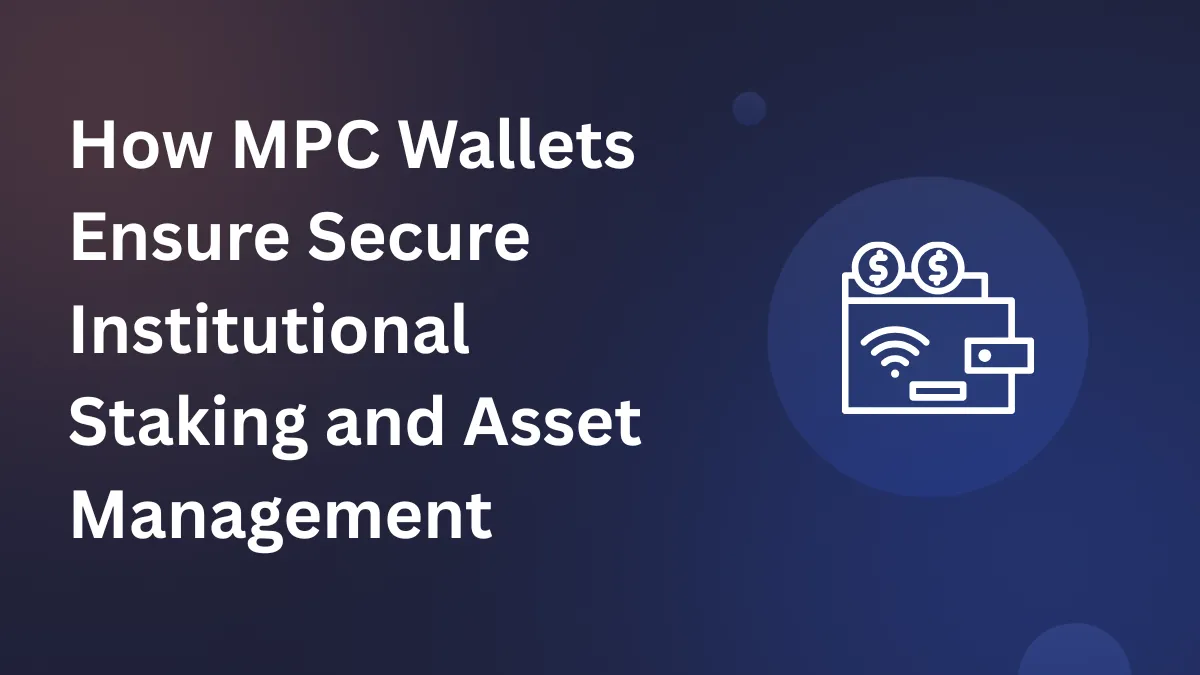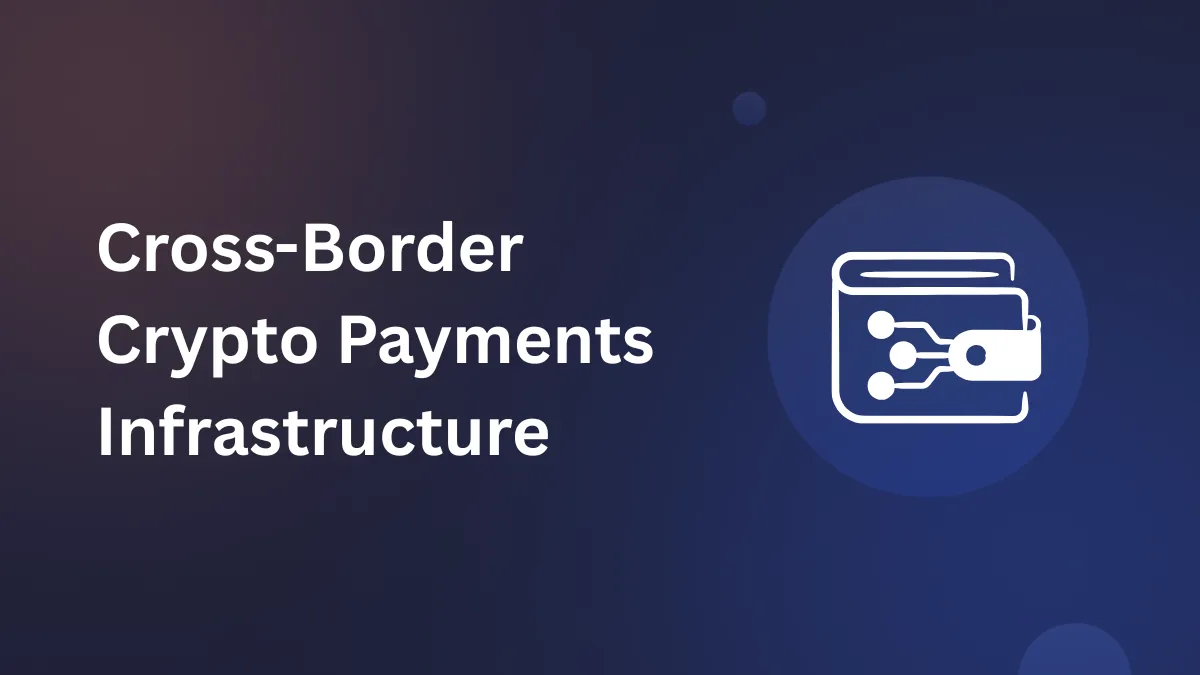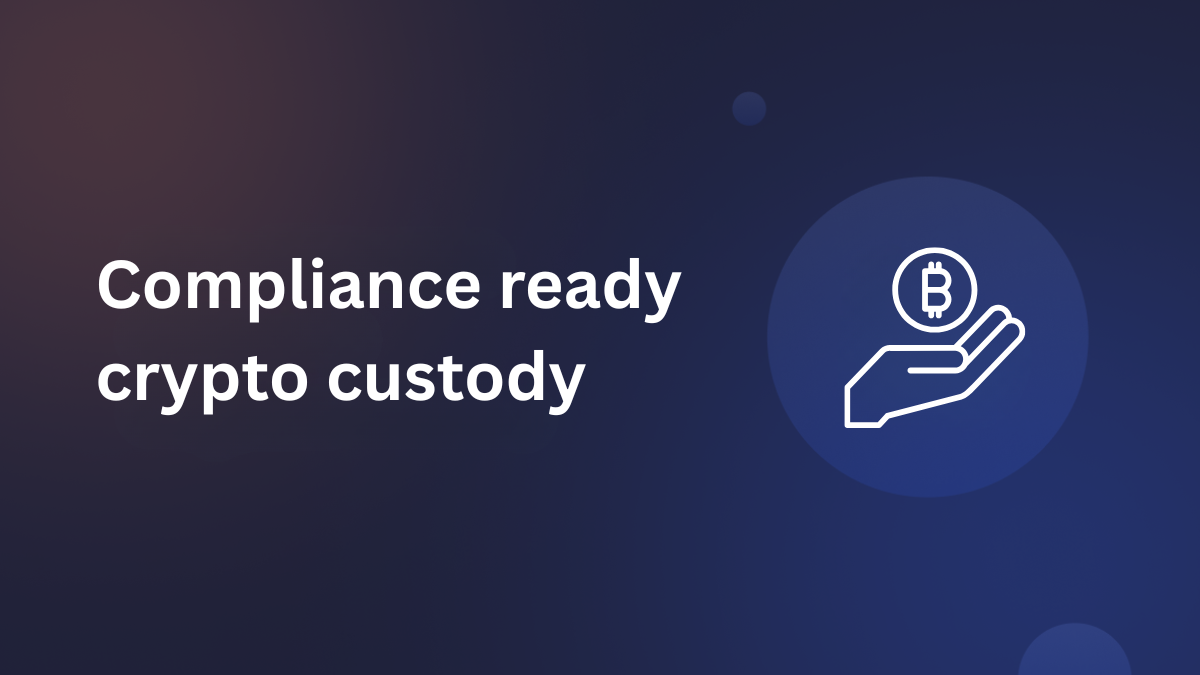What is MPC (Multi Party Computation)?
A cryptographic mechanism called Multi-Party Computation or MPC enables many parties to collaboratively compute a function over their private inputs without ever disclosing those inputs to one another. Imagine a group of friends planning a surprise gift. Each person is planning to pool in but no one wants to say exactly how much they can afford out loud. Instead everyone writes an amount on a piece of paper and puts it into a locked box with a simple mechanism that only reveals the total. This way, they all get to know the total money available for the gift but nobody knows what any one person contributed.
In crypto, MPC uses the same approach to private keys. So, instead of storing the full key in a single location, MPC splits that key in several encrypted shares and keeps each share in a different device or environment. The entire key is never contained in a single server, phone, or hardware component, and it is never necessary to rebuild it in one location.
Traditional wallets usually do the opposite: one key, one device, one significant risk. The attacker may wipe the wallet if that key is taken, identified or leaked. In order to prevent any one party from “knowing everything,” MPC modifies the design. The wallet still has the capacities to authorise and send transactions, but it does so by having multiple key shares collaborate in the background without ever rebuilding the entire key.
From one fragile key to shared keys
For a very long time, cryptocurrency custody was based on the simple principle that whoever possessed the private key owned the coins which typically meant that the entire key was stored in a single hardware wallet, HSM or hot wallet server. It completely worked until it didn’t. Your entire investment can be jeopardised by hacks, insider misuse, lost devices or a single incorrect click on a phishing website because everything hinged on that one secret.
Multisig wallets tried to address this issue by requiring multiple distinct keys to approve a transaction. That was a significant advancement, but it also had drawbacks: each signer appears on the chain, transactions may cost more and certain blockchains don’t support multisig well or at all.
MPC wallets advance the concept. Instead of several full keys, you have many fragments of a single key. Every component lives in a different place, which could be on various servers in different geographic locations, or even with distinct teams. A minimum number of these pieces, for instance, two out of three or three out of five, participate in a unique signature procedure when you need to transfer money. They each do their part of the math locally, then the system combines the results into a valid signature.
At no point does the full private key appear in memory or on disc anywhere. Even if someone manages to compromise one device, all they get is a useless fragment. The end result is just a configuration that functions more like a distributed safety vault, where no single person or computer can put assets at risk on their own, even if it seems like using a regular wallet on a daily basis.
How MPC Wallets actually sign a transaction
The obvious question that arises after realising that the private key is split into fragments is: how does the wallet still manage to sign a transaction if nobody ever sees the entire key?
The signing procedure with an MPC wallet functions similarly to a small, well planned and rehearsed performance. When a user wants to send funds, the wallet initiates a transaction and invites each key share to do its part. Every server or device that has a share performs a local computation on that share. The outcome is worthless on its own. However, when these partial outcomes are put together, they provide a legitimate cryptographic signature that the blockchain recognises as coming from a typical single key.
The important detail is what never happens: the full private key is never reconstructed in memory, on disk, or on any network. Each participant only uses a portion of their own fragment and some encrypted data from the others. If one device is offline, a threshold arrangement such as 2 out of 3 or 3 out of 5 allows the remaining shares to sign safely even if one device is offline. The attacker only sees a scrambled fragment that cannot move funds on its own even if one device is compromised. From the user’s perspective, they just click “send” while a discreet signing ceremony takes place behind the scenes.
Why MPC Wallets are so hard to break
Security is where MPC wallets really earn their place in institutional custody. An attacker only needs to identify one vulnerability in a typical arrangement, such as a misconfigured server, a leaked seed phrase, or an insider with excessive access. Once the private key is exposed, there is nothing left to protect the assets.
With MPC, the attack surface changes completely. There is no single master key sitting in one location waiting to be stolen. Before a transaction is ever performed, an attacker will have to compromise multiple independent environments, which are often run on various devices, on different networks, and protected by separate controls. They would also need to accomplish this in a properly coordinated manner. Even then, what they see are encrypted portions that make no sense on their own.
Furthermore, MPC works well with higher protection levels. Institutions can add human approvals and policy checks on top, store essential shares inside secure hardware or distinct cloud accounts, and yet sign transactions with ease. If one device is lost or destroyed, the remaining shares can be rotated or refreshed without shutting the whole system down. In the end, the wallet functions normally for daily tasks, but from an attacker’s point of view looks more like a moving target with no obvious single door to break through.
MPC Wallets vs MultiSig – what’s the real difference?
MPC and multisig often get mentioned in the same breath because they both distribute power among multiple parties but they do it in very different ways. With multisig, you have multiple distinct private keys. A transaction is only considered legitimate if a minimum number of those keys sign it. This is evident on-chain: a multisig transaction makes it evident that several addresses have approved it, and on certain networks, and on some networks every extra signature can mean extra fees and more complex user experience.
MPC starts from a different place. You possess multiple parts of just one key rather than numerous complete keys. These components never come together, but they work together off-chain to create one, clean signature that mimics a typical wallet transaction. On the blockchain, there’s no clear indication that MPC was used at all, it’s just a regular signature, which keeps costs and complexity down.
This leads to practical differences. Depending on the native functionality of each chain, multisig may be more challenging or less efficient to use across numerous networks. Because MPC is protocol-independent, the same MPC engine can operate consistently across a variety of blockchains. While multisig still makes sense in simpler, governance-heavy setups like autonomous organisations, MPC typically offers more flexibility for a company striving to secure dozens of assets and chains.
Real World MPC Wallet Examples & Institutional Use Cases
MPC wallets are no longer an experiment, millions of people and multiple organisations depend on MPC wallets on a day to day basis. On the retail front, exchanges and apps have started shipping “keyless” or “smart” wallets that silently use MPC behind the scenes. The supplier has divided the key between the user’s device and their own secure infrastructure, even if the user logs in via phone, email, or facial recognition. Losing one end does not automatically imply losing money.
On an institutional level, MPC is used by banks, fintechs, and custody platforms to handle massive reserves and client funds. One key share might sit in a secure cloud environment, another inside hardware, and a third controlled by a different team or region. On a daily basis, teams still see a single balance and click a single “approve” button while everything happens quietly.
How MPC custody is playing out in places like Dubai, Singapore & Taiwan
MPC isn’t just a research concept anymore; in places where authorities want improved controls, it is gradually taking over as the preferred design. A similar pattern can be seen in areas like Taiwan, Singapore, and Dubai: regulators are opening doors to digital assets, but only if companies can demonstrate that they are handling keys securely. Dubai’s virtual asset rules, for example, put a lot of weight on governance, operational durability and clear accountability for client assets. This encourages banks, exchanges, and custodians to set up protocols that make it hard for a single controller, device, or office to transfer money on its own. MPC fits that expectation well, because it lets firms spread key shares across different teams and environments while maintaining seamless operations.
Taiwan and Singapore have distinct preferences yet are headed in similar directions. In Singapore, licensed players must present their ability to preserve client funds and control risks across a variety of activities including trading and payments. Banks in Taiwan that are dealing with digital asset custody are trying to figure out how to plug cryptocurrency into their current risk frameworks without adding a weak link. MPC provides institutions a method to tick those boxes in all three markets: you can design policies where independent controls, head office, and local branches all hold a piece of the key and nothing happens unless everyone plays their part.
How to choose the right MPC wallet setup for your team
When a team finally comes to a conclusion that MPC makes sense, the next problem is determining which type of MPC configuration to use. The correct response is more dependent on how your company actually operates on a daily basis than it is on pure encryption. A trading desk that needs to move funds quickly across ten chains will care about different things than a bank onboarding its first custody clients.
A good starting point is to map three areas: who should hold key shares, what approval steps are required for varying transaction amounts, and which systems the wallet needs to connect to. Some teams like a straightforward 2-of-3 configuration, in which two of the three shares are sufficient for signing, with one share on a secure server, one on a hardened device, and one as a backup or for break‑in situations. Larger companies may prefer a 3-of-5 strategy, in which operations, risk, compliance, and an independent security department each handle a portion.
It is also worth looking at practical details: does the solution support your current custody, trading, or treasury systems; does it serve all the chains and tokens you care about; and how easy is it for non-engineers to understand the policies? The best MPC setup is the one your team can actually operate confidently. Understanding who can do what, what happens if a device is lost, and how to recover safely leads to a system that is not just theoretically secure but also reliable in real-world application.
How to evaluate an MPC wallet setup: a quick checklist
When you’re comparing MPC wallet providers or designs, it helps to lean on a simple checklist instead of getting lost in cryptography jargon. You can walk through questions like these with your team:
1. Who actually controls the key shares?
- Are all the shares sitting in one cloud account, or truly split across different environments and teams?
- Is your 2‑of‑3 or 3‑of‑5 setup real separation of duties, or do the same two people effectively control everything?
2. What can you really secure with it today?
- Which chains and tokens are supported right now, not just on the roadmap?
- How easy is it to add new networks when your product expands?
- Are things like staking, stablecoin flows and DeFi access built in from day one, or bolted on as side integrations?
3. How do governance and recovery work in practice?
- Can you turn real‑world rules into policies, like “large withdrawals must be approved by both operations and risk”?
- What’s the process if a device or share is lost or compromised?
- Does the provider support safe key rotation and recovery, or would you have to recreate wallets and move everything?
4. Does it fit your people and your stack?
- Is there a dashboard your non‑engineer colleagues (ops, finance, compliance) can actually use without help?
- Are there clean APIs that plug into your exchange, banking, or treasury systems?
- Will your wider team be comfortable running this day to day, or does it depend on one or two MPC “wizards” to keep it alive?
Often, the best choice is not the fanciest scheme on paper, but the one your team understands well enough to operate safely every single day.







